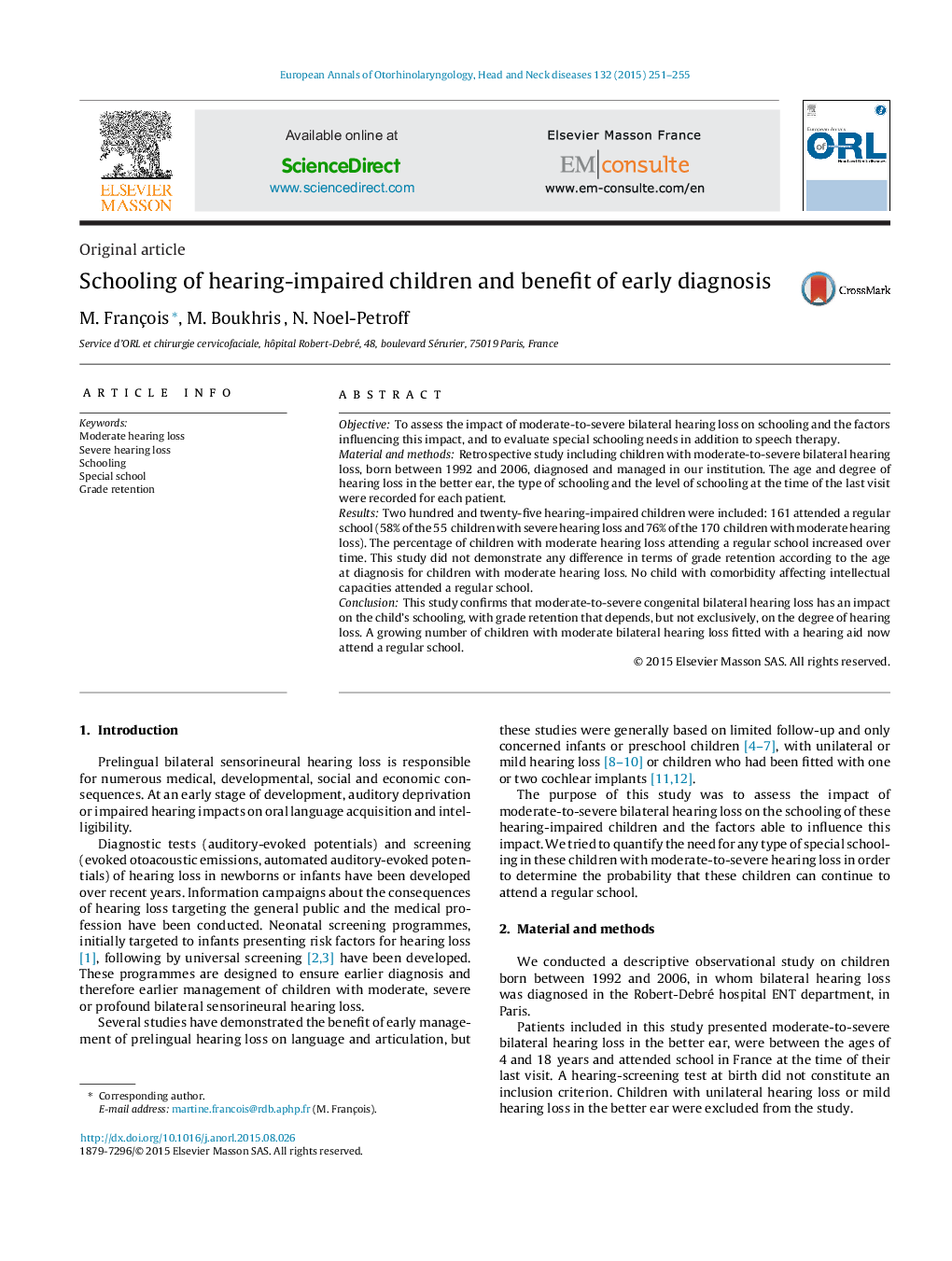| Article ID | Journal | Published Year | Pages | File Type |
|---|---|---|---|---|
| 4109982 | European Annals of Otorhinolaryngology, Head and Neck Diseases | 2015 | 5 Pages |
ObjectiveTo assess the impact of moderate-to-severe bilateral hearing loss on schooling and the factors influencing this impact, and to evaluate special schooling needs in addition to speech therapy.Material and methodsRetrospective study including children with moderate-to-severe bilateral hearing loss, born between 1992 and 2006, diagnosed and managed in our institution. The age and degree of hearing loss in the better ear, the type of schooling and the level of schooling at the time of the last visit were recorded for each patient.ResultsTwo hundred and twenty-five hearing-impaired children were included: 161 attended a regular school (58% of the 55 children with severe hearing loss and 76% of the 170 children with moderate hearing loss). The percentage of children with moderate hearing loss attending a regular school increased over time. This study did not demonstrate any difference in terms of grade retention according to the age at diagnosis for children with moderate hearing loss. No child with comorbidity affecting intellectual capacities attended a regular school.ConclusionThis study confirms that moderate-to-severe congenital bilateral hearing loss has an impact on the child's schooling, with grade retention that depends, but not exclusively, on the degree of hearing loss. A growing number of children with moderate bilateral hearing loss fitted with a hearing aid now attend a regular school.
